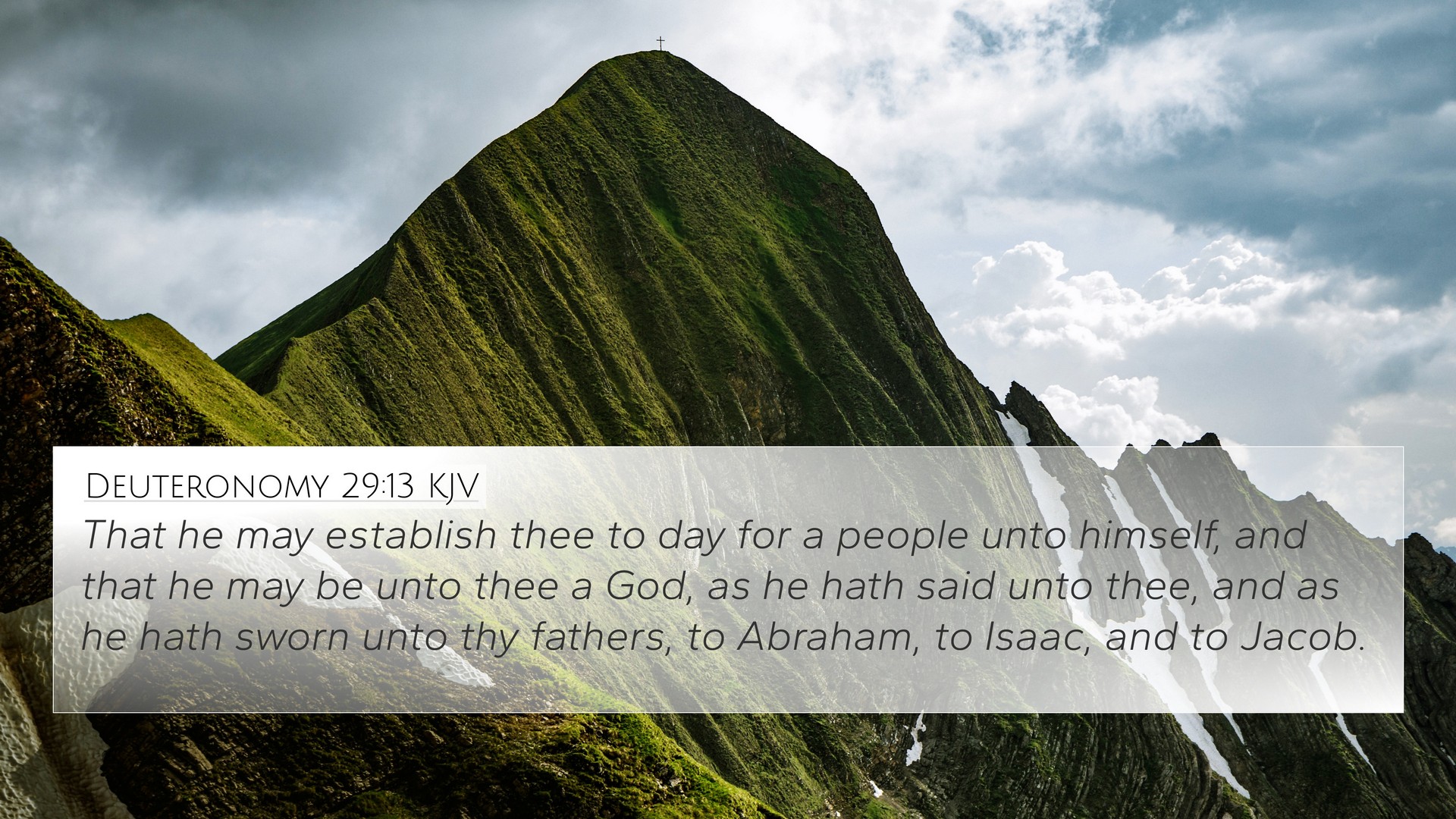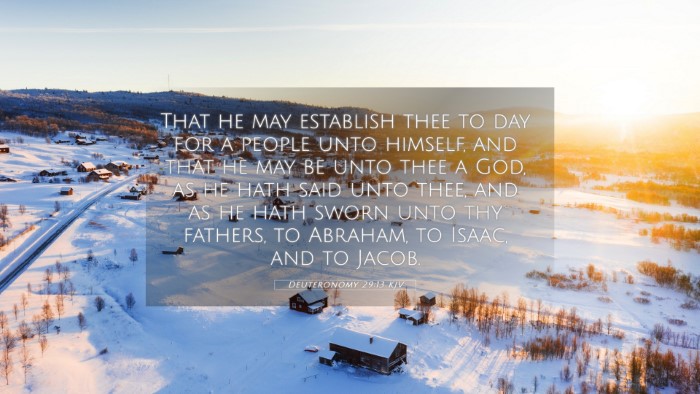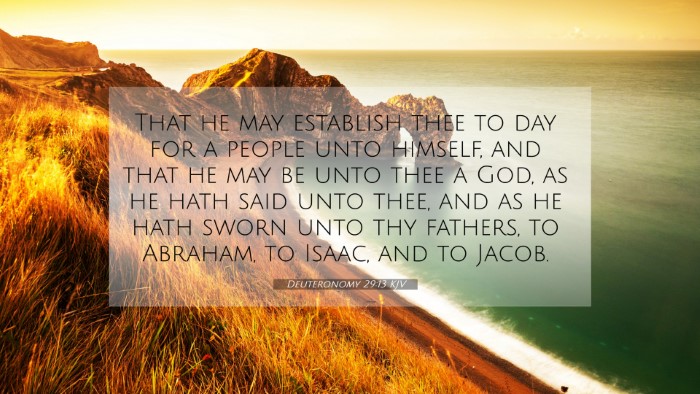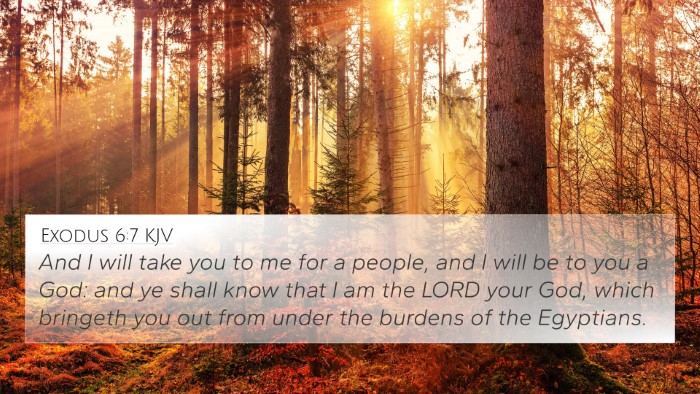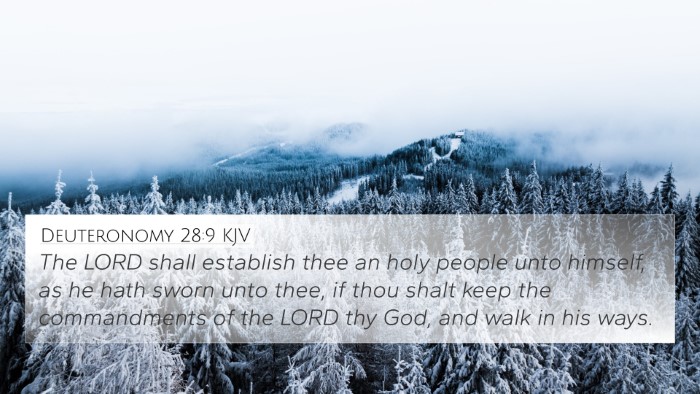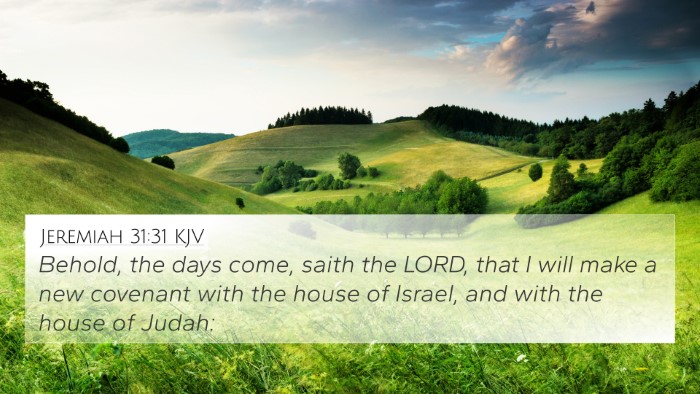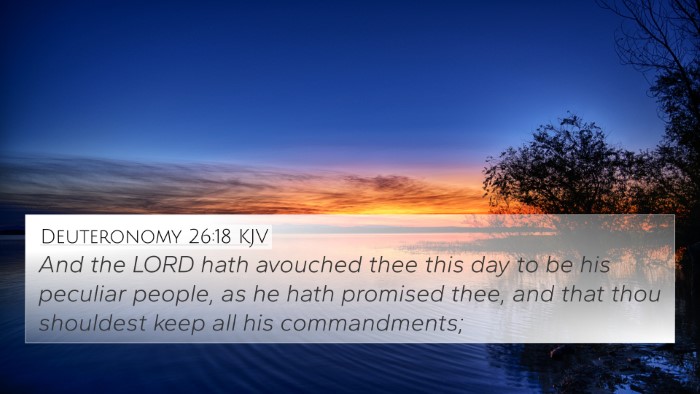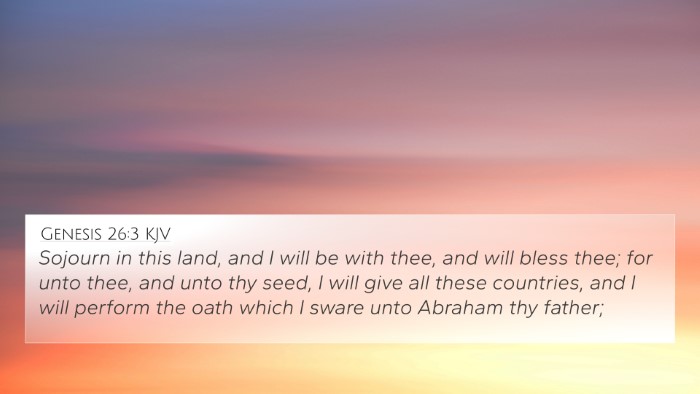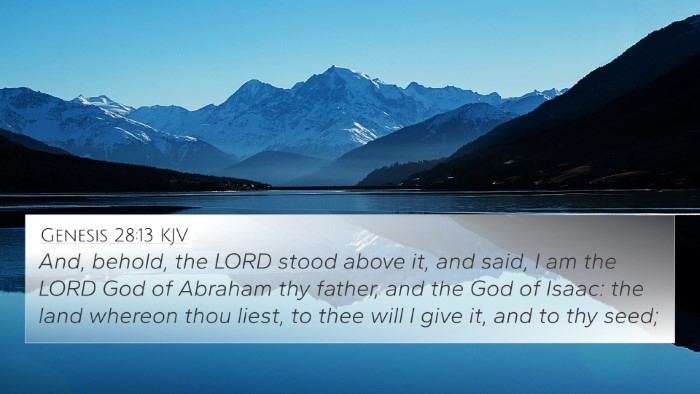Understanding Deuteronomy 29:13
Deuteronomy 29:13 states, "That he may establish thee to day for a people unto himself, and that he may be unto thee a God, as he hath said unto thee, and as he hath sworn unto thy fathers, to Abraham, to Isaac, and to Jacob."
This verse encapsulates the covenant relationship God seeks to establish with Israel. It emphasizes God's faithfulness in fulfilling His promises to their forefathers, presenting a deep theological assertion about identity, purpose, and divine guidance.
Commentary Insights
Matthew Henry's Commentary
Henry emphasizes that the covenant is not merely a formality but a profound commitment of God to His people. He notes that God’s establishing Israel as His people requires their loyalty and obedience, reinforcing the idea that fellowship with God is reciprocal, involving both divine initiative and human response.
Albert Barnes' Commentary
Barnes highlights the significance of God's promises to the patriarchs. He explains that this verse serves as a reminder of God's unwavering commitment to the covenant He initiated with Abraham, Isaac, and Jacob. It’s an assurance that Israel is chosen not for their merit but through divine grace.
Adam Clarke's Commentary
Clarke outlines that the establishment of the people of God signifies sovereignty and presence. He points out that the people’s acknowledgment of God’s lordship is crucial for experiencing His blessings. Clarke links this establishment with the broader narrative of the Israelites' journey and the call for exclusive devotion to God.
Thematic Connections and Cross-References
Deuteronomy 29:13 connects not only with the immediate narrative of the Israelites but also expresses broader biblical themes. Here are some related Bible cross-references:
- Exodus 6:7: God promises to take the Israelites as His own people.
- Leviticus 26:12: A reaffirmation of God walking among His people.
- Jeremiah 30:22: God’s promise that His people will be His and He will be their God.
- Ezekiel 34:30: The assurance of God’s relationship with His people.
- Romans 9:4-5: Paul reflects on the privileges of Israel, connecting with their foundational covenant.
- Hebrews 8:10: A new covenant where God writes His laws in the hearts of His people.
- Galatians 3:29: The gentiles are grafted into the promises made to Abraham.
- 1 Peter 2:9: Believers are now a chosen generation, echoing the concept of identity as God's people.
- Matthew 22:32: Jesus refers to the God of Abraham, Isaac, and Jacob, reaffirming the covenantal nature of God.
- Acts 3:25: Reflection on the fulfillment of God’s promises to the patriarchs.
Conclusion: The Faithfulness of God
Deuteronomy 29:13 encapsulates the covenantal promise of God, revealing His desire to be intimately connected with His people. The reciprocal nature of this relationship calls for the acknowledgment of God's ultimate authority and grace. For further understanding, it’s useful to study the links between this and other related verses which illuminate the continuous thread of God's faithfulness throughout scripture. Using tools for Bible cross-referencing can enhance this understanding, allowing one to explore the connections between Bible verses across both the Old and New Testaments.
